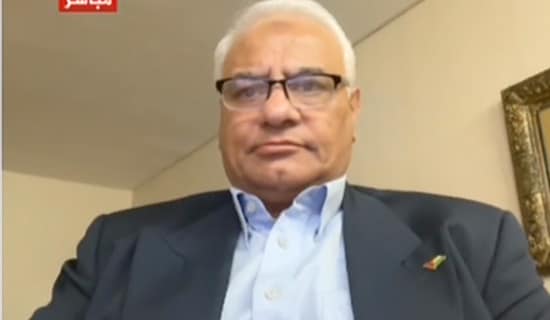
Egyptian-American researcher Samuel Tadros said in a March 13, 2020 show on Al-Hurra TV (U.S.) that there is an increase in atheism in the Middle East because the religious discourse is failing to give people answers that are compatible with science and that are satisfactory for the 21st century, because the conduct of organizations like ISIS and the Muslim Brotherhood has been causing people to doubt religious beliefs, and because the widespread availability of information through mediums such as the Internet is opening people's eyes to new ideas. Criticizing Middle Eastern regimes that believe that the spread of atheism is the result of a Western conspiracy, Tadros said that it is the problems in Middle Eastern society that are driving people towards atheism. For more about Tadros' show on Al-Hurra TV, see MEMRI TV Clip No. 7438.
Samuel Tadros: "If someone wants to be an atheist while I choose to be religious, that is a personal choice. Society should accept both of these. But we are talking about an increase... According to some surveys, and some things indicate this, there is an increase in atheism in the Middle East. I believe that this has to do, first and foremost, with the failure of the religious discourse. In other words, the religious establishments can no longer provide adequate answers to the minds of people living in the 21st century. It cannot be that I encounter Darwinian theory and all the evidence that scientific development entails, and then someone just tells me: 'No, this is all just...' Either you should try and present a religious discourse that is compatible with scientific evidence, or you will no longer convince me.
[...]
"Islamists played a very important role [in the increase of atheism in the region] because they drove people away from religion. In other words, one cannot see things that were done in the name of Allah and say: 'Yes, these are good things.' The conduct of ISIS, and of the Muslim Brotherhood while they were in power... All the people who exploited religion for their political agenda... I believe that all this caused an increase in the number of people who have doubts about religion. In addition to all this, I believe that the Internet, or the availability of knowledge, have played a very important role [in this increase in atheism]. In the past, we were restricted to a certain framework of knowledge. Today, people have knowledge of many things, and this opens their eyes to things that ideas that they had not held before.
[...]
"At the end of the day, it is a personal choice for every individual. The real problem is with regimes and nations that are convinced that atheism is a Western conspiracy against them, that [atheism] did not exist among them at all in the past, and that it is only [the West] that implanted it into their midst. The problems and the ideas that exist in our societies are what drive people towards atheism, if you view atheism as a problem."














